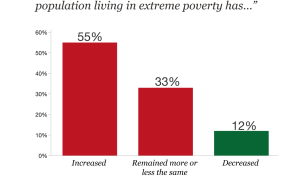Digital Governance Trends Capturing Global Interest highlights an evolving landscape where technology meets policy, reshaping how governments engage with citizens and manage resources. In an age characterized by rapid technological advancements, the importance of digital governance cannot be overstated. This topic delves into how various countries are adopting new frameworks to enhance transparency, efficiency, and accountability in public services.

With the rise of digital tools, governments are now better equipped to handle complex challenges, streamline processes, and facilitate citizen engagement. The exploration of these trends reveals not only the current practices but also the potential future directions of governance in the digital realm.
In today’s fast-paced world, the importance of maintaining a healthy lifestyle cannot be overstated. With the rise of technology and fast food, many individuals find themselves leading sedentary lives that can have detrimental effects on both physical and mental health. This article aims to explore various aspects of a healthy lifestyle, including nutrition, exercise, mental well-being, and the importance of balance in daily life.### Nutrition: The Foundation of HealthNutrition plays a crucial role in maintaining overall health.
Eating a balanced diet that consists of a variety of foods is essential for providing the body with the nutrients it requires to function optimally. A diet rich in fruits, vegetables, whole grains, lean proteins, and healthy fats can help reduce the risk of chronic diseases such as obesity, heart disease, and diabetes.One key aspect of good nutrition is portion control.
Understanding the right serving sizes can help individuals avoid overeating and maintain a healthy weight. Additionally, it is important to be mindful of the quality of food consumed. Whole, unprocessed foods should be prioritized over processed alternatives that are high in sugars, salt, and unhealthy fats.Furthermore, hydration is often overlooked but is vital for overall health. Drinking adequate amounts of water throughout the day can improve energy levels, support digestion, and enhance skin health.
A general guideline is to aim for at least eight 8-ounce glasses of water daily, but individual needs may vary based on factors such as activity level and climate.### Exercise: Moving Towards a Healthier LifeIn conjunction with nutrition, regular physical activity is another cornerstone of a healthy lifestyle. The Centers for Disease Control and Prevention (CDC) recommends that adults engage in at least 150 minutes of moderate-intensity aerobic activity each week, combined with muscle-strengthening activities on two or more days.
This can be achieved through various forms of exercise, including walking, jogging, cycling, swimming, or participating in sports.Exercise not only helps maintain a healthy weight but also has numerous mental health benefits. Physical activity releases endorphins, which are known to improve mood and reduce stress. Moreover, regular exercise can enhance cognitive function, leading to better focus and productivity in daily tasks.For those who may find it challenging to incorporate exercise into their routines, it is essential to start small.
Finding activities that are enjoyable can make the process more engaging. Whether it’s dancing, hiking, or playing a sport, the key is to remain active and gradually increase intensity and duration.### Mental Well-being: The Mind-Body ConnectionWhile physical health is vital, mental well-being is equally important. Stress, anxiety, and depression can significantly impact one’s quality of life. It is essential to prioritize mental health and adopt practices that promote emotional well-being.One effective way to manage stress is through mindfulness and meditation.
These practices allow individuals to focus on the present moment, fostering a sense of calm and reducing anxiety. Simple techniques, such as deep breathing exercises or guided meditation, can be incorporated into daily routines to help manage stress levels.Additionally, maintaining social connections is crucial for mental health. Engaging in meaningful relationships with friends and family can provide emotional support and enhance feelings of belonging.
Whether it’s through regular check-ins, shared activities, or simply spending time together, nurturing connections can significantly improve overall well-being.### The Importance of BalanceAchieving a healthy lifestyle is not solely about diet and exercise; it’s also about finding balance in various aspects of life. This includes work-life balance, social interactions, and leisure activities. Overcommitting to work or social obligations can lead to burnout, making it essential to prioritize self-care.Setting aside time for relaxation and hobbies is vital for mental rejuvenation.
Whether it’s reading a book, gardening, or painting, engaging in activities that bring joy can enhance overall happiness and reduce stress. It’s important to remember that self-care is not selfish; taking time for oneself ultimately enables individuals to be more present and engaged in other areas of life.### The Role of Sleep in a Healthy LifestyleAnother crucial component of a healthy lifestyle is adequate sleep.
Quality sleep is vital for physical recovery, cognitive function, and emotional regulation. The National Sleep Foundation recommends that adults aim for 7-9 hours of sleep per night.Creating a sleep-friendly environment can greatly improve sleep quality. This includes maintaining a consistent sleep schedule, reducing screen time before bed, and optimizing the sleep environment for comfort. Practices such as reading or gentle stretching before bedtime can also promote relaxation and signal the body that it’s time to wind down.### ConclusionIn summary, adopting a healthy lifestyle encompasses a holistic approach to well-being, including nutrition, exercise, mental health, social connections, and adequate sleep.
Striving for balance in all aspects of life can contribute to a more fulfilling and enjoyable existence. Remember that small, incremental changes can lead to significant improvements over time. It’s never too late to begin prioritizing health; every step taken towards a healthier lifestyle is a step in the right direction. Whether it’s choosing a nutritious meal, engaging in physical activity, or practicing mindfulness, every effort counts in the journey towards better health.
FAQ Compilation: Digital Governance Trends Capturing Global Interest
What is digital governance?
Digital governance refers to the use of digital tools and technologies to improve government processes, enhance service delivery, and increase transparency and citizen engagement.
Why is digital governance important?
It is important because it helps streamline operations, reduces costs, enhances citizen participation, and promotes accountability within governmental frameworks.
How is technology changing governance?
Technology is enabling governments to adopt data-driven decision-making, improve service delivery, and create more interactive platforms for citizen engagement.
What are the challenges of digital governance?
Challenges include cybersecurity threats, ensuring equitable access to services, and maintaining data privacy while fostering innovation.
What is the future of digital governance?
The future of digital governance is likely to see increased integration of AI and machine learning, more personalized services for citizens, and enhanced collaboration across borders.






